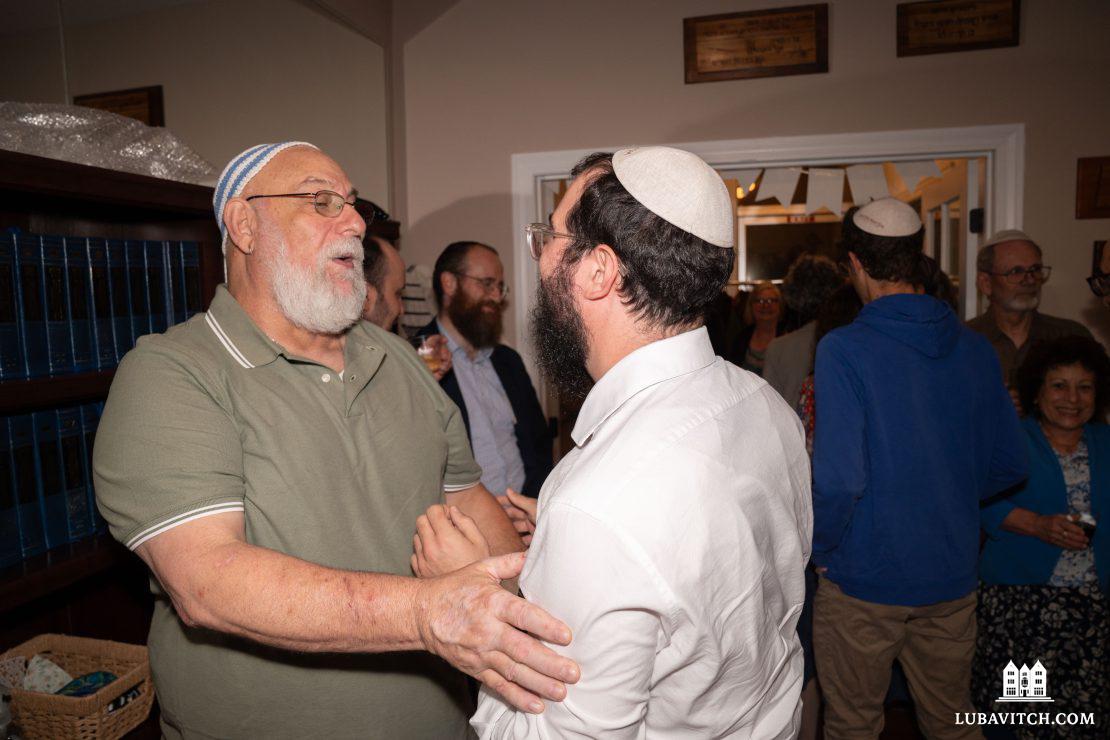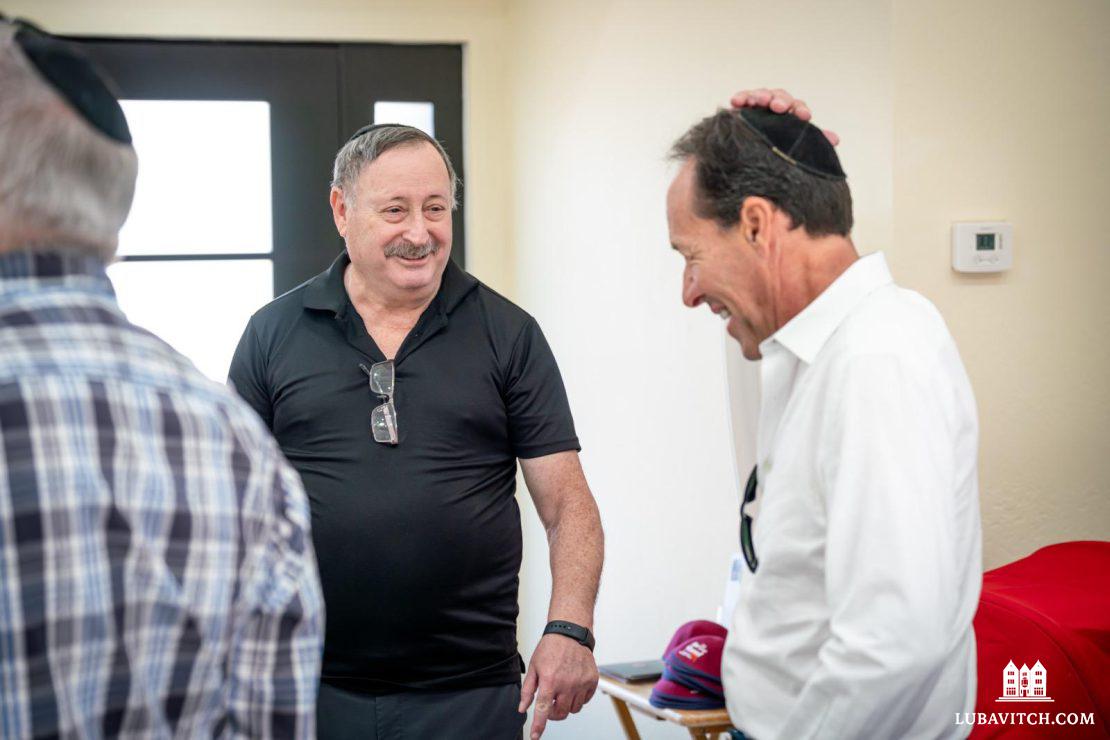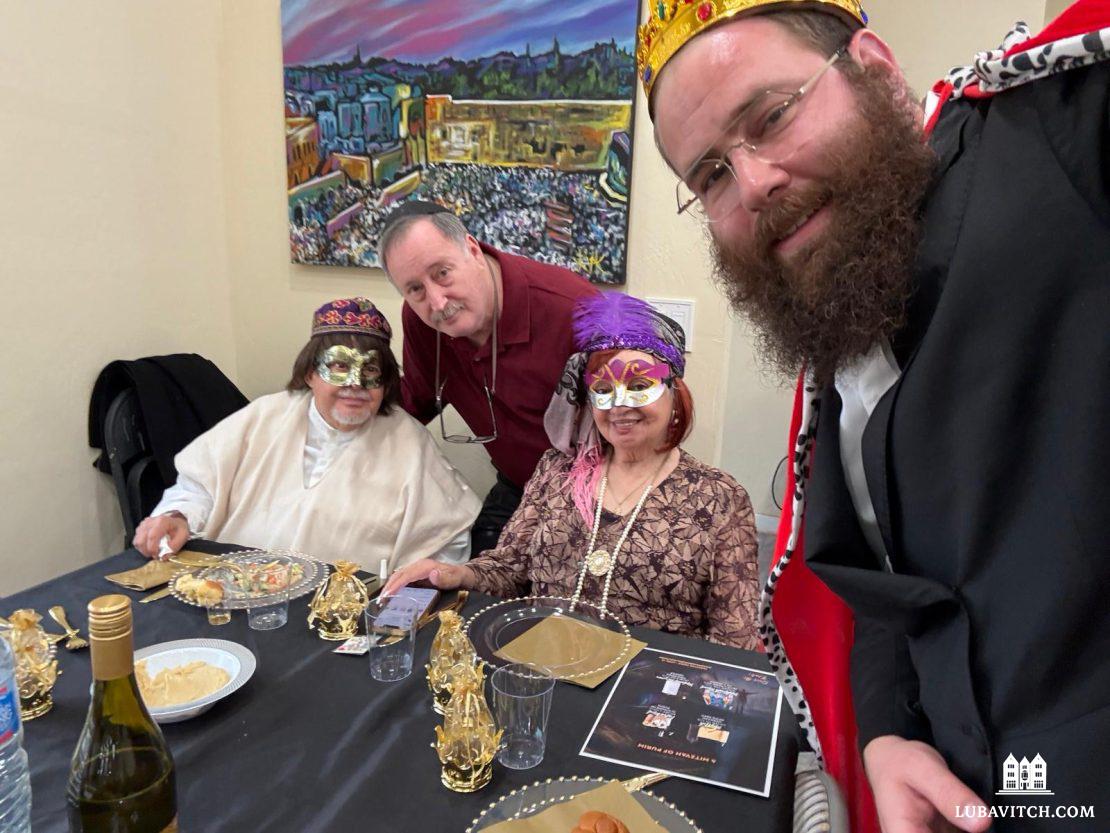It’s 2025, and subscriptions are ubiquitous.
Everything from doorbells to heated seats now require users to fork over cash every month to keep their memberships in good standing. But when it comes to High Holiday services, Chabad centers around the world are preparing to welcome thousands of worshippers — no membership required. And it’s made Chabad centers a welcoming place to many who wouldn’t necessarily otherwise feel at home in shul.
Before the High Holidays each year, Chabad of Paradise Valley, Arizona mails out tickets to their High Holiday services. But they don’t send them to members — they send them to every Jew they know. And the “tickets” simply state “Admit One — everyone. No ticket is needed to enter.”
Fred Eiss, a retired labor union worker, had never been to Chabad. “To be honest, I wasn’t much into prayer at all,” he said. “Where I grew up, there were synagogues everywhere, but you had to be a member, or you had to buy the seats — and that turned me off.”

But his wife’s boss, who is Jewish, had received one of the “tickets.” Having made his own plans for the High Holidays, he passed the ticket along to Fred. “And what I got a kick out of was that right there on the ticket it says, ‘You don’t have to pay to pray.’”
Fred joined services for the first time, and has been back many times since. That initial High Holidays experience was a catalyst for connection.
“We send out tickets for free admission because we want every Jew to recognize that they are always welcome to connect to G-d,” said Rabbi Shloimy Levertov of Chabad of Paradise Valley.
It’s a model that has helped Jews of all backgrounds feel welcome at Chabad. Pew Research’s “Jewish Americans in 2020” found that while fewer than 10% of Jews identify with Orthodox Judaism, 37% participate in Chabad activities or services. That same study found that about half of people who identify with a denomination are not synagogue members, and suggests that “There could be multiple reasons for this, including Jewish denominational attachments retained since childhood, participation in Chabad or other synagogues that do not have a formal membership structure, and financial barriers to synagogue membership, among other possibilities.”
Jon Stern is an English professor who grew up in New Jersey. As a child, his mother had taken him to several synagogue but was turned away because she couldn’t afford membership dues. “I got rejected, and I kind of wandered,” Stern said.

Later in life, he moved to Lynwood, Washington, where he began a job teaching English at Olympic College in Bremerton, WA. He decided to try, once more, to connect with his roots. “I was looking at a list of local synagogues, and I saw Chabad. I said, ‘you know, I’m gonna give this a shot.’”
He reached out to Rabbi Berel Paltiel, of Chabad of Snohomish County, Washington. “I didn’t know what they would look like, I didn’t know what to expect.” But he went for coffee with Rabbi Paltiel, and the North-Jersey-raised Stern felt an instant kinship. “As soon as I heard that Brooklyn accent, I said, ‘OK, I’m in good hands.’”
This Rosh Hashanah, for the first time in his life, 59-year-old Jon Stern will be attending High Holiday services at Chabad of Snohomish County, where he has found a sense of belonging and an open door.
The rabbi and his wife Goldie are averse to pay-to-pray membership fees. “Torah and Judaism belong equally to every Jew, and the shul is our shared home.”
Stern is grateful. “To me, the fact that Chabad welcomes people without requiring membership means freedom: the freedom to be Jewish, to experience our heritage — no matter where they are in life.”
To find a Chabad center near you, and for more information about High Holiday services, visit Lubavitch.com/centers.



Be the first to write a comment.